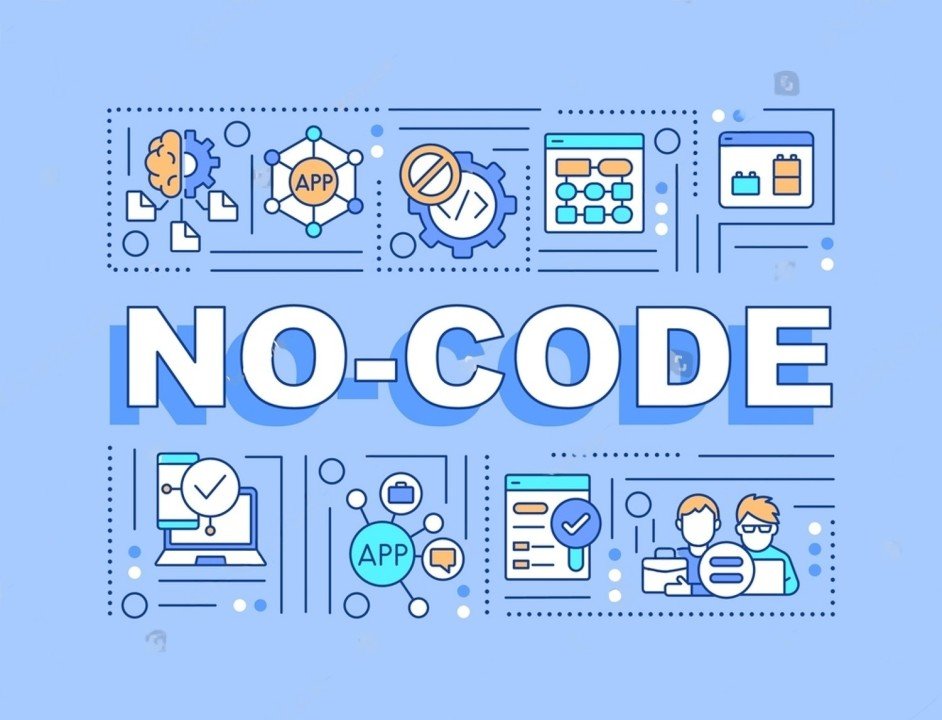The traditional process of software development often requires a team of skilled developers and months of work. However, the rise of low-code and no-code platforms is reshaping the landscape, allowing even non-developers to build apps with little to no coding expertise. These platforms offer a more efficient way to develop applications, making it easier for businesses to meet their technological needs without relying heavily on technical teams.
In this article, we will explore the growing popularity of low-code and no-code platforms, the key benefits they offer, and how they are transforming app development across industries.
What Are Low-Code and No-Code Platforms?
Low-code platforms provide a development environment where users can drag and drop components to create software applications. While some coding knowledge might be needed to fully customize apps, these platforms significantly reduce the need for in-depth coding skills.
No-code platforms take it a step further, allowing users to build applications entirely without coding. They are designed for non-technical users who need solutions quickly, enabling them to create apps using visual interfaces, pre-built templates, and intuitive workflows.

Why Are Low-Code and No-Code Platforms Popular?
Low-code and no-code platforms are growing in popularity for several reasons. Here are some of the main factors driving their adoption:
-
Speed and Efficiency
One of the biggest advantages of these platforms is the ability to develop apps much faster than with traditional coding. By using visual tools, users can quickly create, test, and deploy applications, cutting down development time from months to just days or even hours.
-
Accessibility for Non-Developers
The democratization of app development is another significant benefit. With no-code platforms, individuals with no programming background can build fully functional applications. This allows businesses to empower their employees, including those in marketing, sales, or operations, to develop their own solutions without needing to hire developers.
-
Cost-Effective Development
Low-code and no-code platforms offer a more affordable solution for companies with limited budgets. Since they reduce the need for specialized development teams, businesses can save on costs related to hiring, training, and project delays.
-
Agility and Flexibility
In a world where businesses need to adapt quickly, low-code platforms offer unparalleled flexibility. They allow companies to iterate and improve their applications in real-time, responding to customer feedback or changing market conditions without the long development cycles associated with traditional coding.
Popular Low-Code and No-Code Platforms
Here’s a look at some of the most popular low-code and no-code platforms making waves in app development today:
-
OutSystems (Low-Code)
OutSystems is one of the leading low-code platforms, enabling businesses to build enterprise-grade apps that are highly scalable and secure. It combines visual development tools with the option to write custom code when needed, providing more control over the final product.
-
AppSheet (No-Code)
Acquired by Google, AppSheet is a powerful no-code platform that allows users to build mobile and web applications from their data without needing to write code. Its intuitive interface makes it easy to create apps from spreadsheets, databases, and cloud services.
-
Bubble (No-Code)
Bubble is a popular no-code platform for building web applications. It provides a highly customizable interface, allowing users to design, develop, and launch apps without any technical expertise. Bubble is ideal for startups and small businesses looking to build MVPs (minimum viable products).
-
Mendix (Low-Code)
Mendix offers both low-code and no-code capabilities, making it one of the most flexible platforms for app development. It’s geared towards enterprises and allows collaboration between IT professionals and business stakeholders, ensuring that applications meet business needs while adhering to IT standards.
How Low-Code and No-Code Platforms Are Transforming App Development
-
Bridging the Developer Gap
The shortage of skilled developers is a challenge many companies face today. Low-code and no-code platforms help bridge this gap by enabling non-developers to create applications. This is especially important in industries like healthcare, education, and retail, where custom software is becoming increasingly necessary.
-
Empowering Business Teams
With no-code platforms, business teams are no longer dependent on IT departments for every small software change. They can create and manage applications on their own, freeing up IT resources for more complex projects.
-
Rapid Prototyping and Innovation
Low-code platforms are ideal for rapid prototyping, allowing businesses to test new ideas quickly. This fosters innovation, as teams can experiment with different solutions without the lengthy and costly process of traditional development.
-
Scaling Applications with Ease
Low-code platforms are designed to scale. As a business grows, these platforms allow applications to evolve without needing to start from scratch. This flexibility ensures that companies can meet growing demands and scale their solutions as needed.
Key Benefits of Low-Code and No-Code Platforms
Here are some of the primary advantages businesses gain by adopting low-code and no-code platforms:
-
Faster Time to Market: Apps can be developed and deployed in a fraction of the time, giving businesses a competitive edge.
-
Cost Savings: Reducing the need for professional developers lowers the overall cost of app development.
-
Increased Productivity: Business teams can handle application development themselves, freeing IT departments to focus on more strategic initiatives.
-
Customizable Solutions: Users can easily tailor apps to meet specific business needs, without relying on generic off-the-shelf software.
-
Lower Technical Barriers: These platforms reduce the technical knowledge required to build powerful applications, allowing for greater participation across departments.
Challenges and Limitations
While low-code and no-code platforms offer numerous benefits, they are not without challenges:
-
Customization Limitations: No-code platforms may offer limited customization options compared to fully coded applications. Businesses with highly specific needs may find the functionality insufficient.
-
Security Concerns: Since these platforms are often used by non-developers, there may be security risks if proper protocols are not followed. It’s essential for businesses to ensure their no-code applications are secure and compliant with industry regulations.
-
Scalability for Complex Projects: Low-code platforms are excellent for simpler applications but may not be the best choice for complex, large-scale enterprise systems that require extensive customization.




